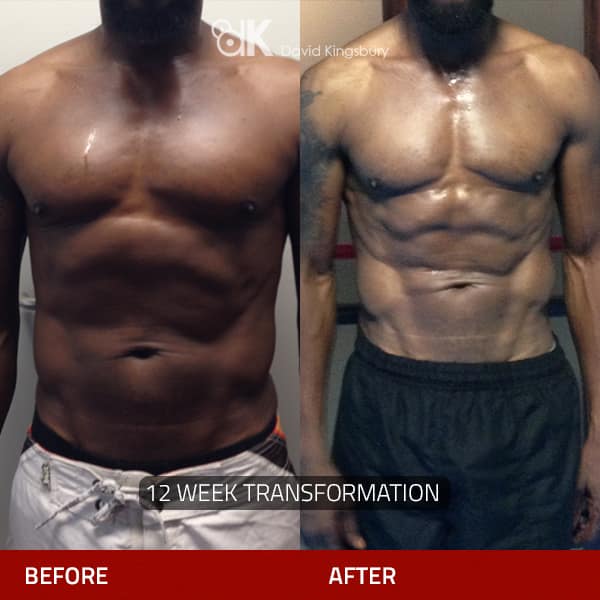12 Week Transformation Tuesday – Gary
Gary worked with me for 12 weeks to drop body fat and maintain muscle. We worked in detail on every aspect of health and nutrition to ensure maximum results. Gary worked incredibly hard to achieve these results in the time given “David’s knowledge, motivation and support are second to none for getting results”

How you should choose your trainer:
5 steps to finding the best online trainer for you
You might think that, given the very physical nature of training and fitness, having a personal trainer that is purely virtual is a strange solution, but it’s very real and it’s a great way to keep you motivated, but then I would say that.
When I say ‘personal training’, I’m talking about ‘real’ personal training. I don’t mean someone showing a modicum of interest in you and just telling you what exercises to do when you first join a gym. I’m talking about someone who is as determined and as focussed as you are. Someone who will create a training and nutritional schedule geared around your individual needs, goals and targets. Someone who looks at what you’re aiming for and works tirelessly to get you there. Let’s take a look at the 5 things you should be asking of your online trainer.
1. Real World Credentials
Don’t for a minute think that just because your relationship with your new online trainer may only be conducted via the power of the internet, that this somehow detracts from the need for them to have real qualifications. Any trainer worth their salt will have real world qualifications and experience. When you’re looking to enter into an agreement with them, make sure you ask for confirmation of them. Wherever possible, ask them to send pictures of the certificates and check them out thoroughly. With modern technology, this shouldn’t be a problem and if you’re in any doubt, ask!
2. Qualified and Insured
Once you’ve established they are suitably qualified, then the paper trail doesn’t stop there. Let’s not forget that these people will be providing you with real-world advice. Your health and wellbeing, to some extent, will be dependant on the advice and guidance they give you. With that in mind, you will need to confirm that they are professionally insured, should you get seriously injured as a result of their training. This only serves to emphasise my earlier point. Personal training is an in-depth tool and not one to be take lightly.
3. Personalised
You and your newly-found, validated online trainer need to be working together closely. Perhaps not geographically, but the training schedule they devise for you needs to be exactly that; for you. A standard, generic training plan may be useful to some degree, but it won’t be what you’re paying for and it most certainly won’t be tailored to your specific needs. Everyone is different and so every training plan should be different too. It should take into account your age, your weight (current and target), your goals, your strengths as well as your weaknesses. It should be there to enhance your abilities and get you where you want to go. Your trainer may not be there in person, but they should be there in mind and in spirit every step of the way.
4. Nutritional Advice
There so much more to a training plan than sets, reps and the amount of weight lifted or miles run. They all play a part for sure, but they’re only half the story. A fully-featured training plan must take into account nutritional advice. If your online trainer isn’t including what you should be eating (and to some extent drinking) as part of your plan, they are missing out 50% of what they need to be doing. Of course they can only advise on what to eat, you are the one who is going to have to be disciplined enough to carry it through, but that’s why the relationship you have with them is so important. Which leads me onto….
5. Two Way Street
Working with your online trainer should be a reciprocally beneficial relationship, based on mutual respect and shared goals. They will be as keen for you to succeed as you are. It’s one thing to check their credentials are reputable and valid, but they also need to be asking questions of you too. How else will they know to tailor the plan around you if they don’t have the all information they need. They should be asking you about your goals, any injuries you may have had (or currently have – another reason why insurance is important), the food you like (and dislike) including any allergies. It’s not a finite list at all, but if they are willing to create a plan without this kind of information, they are missing a trick and so are you!










